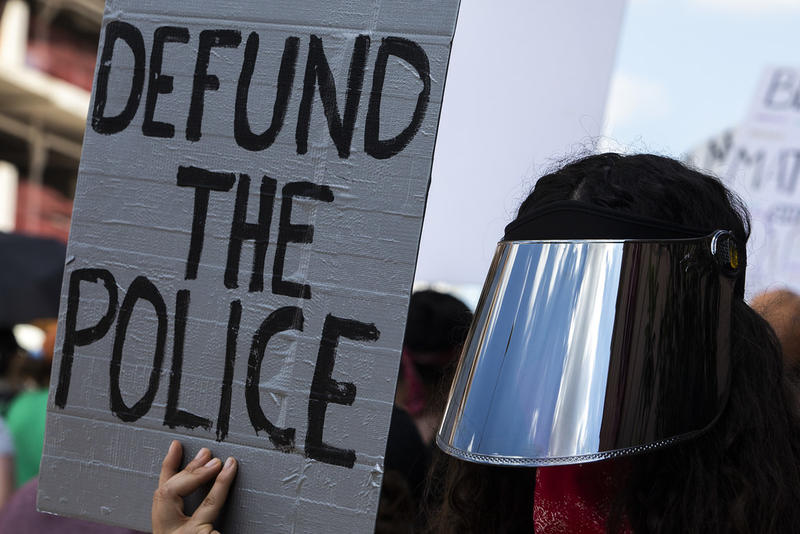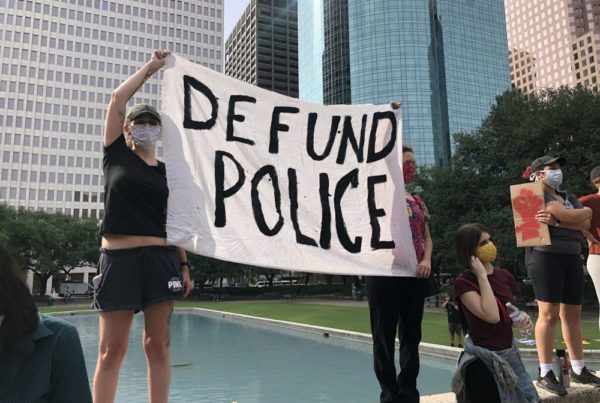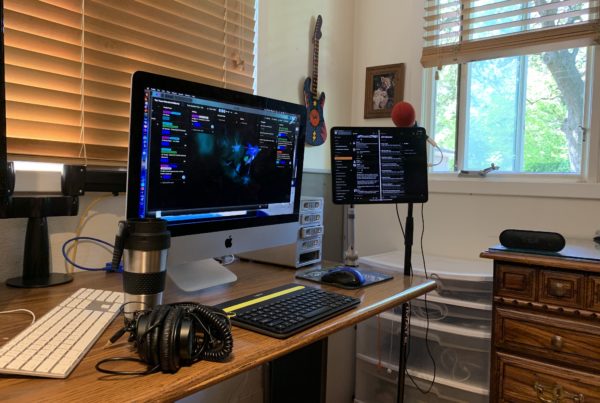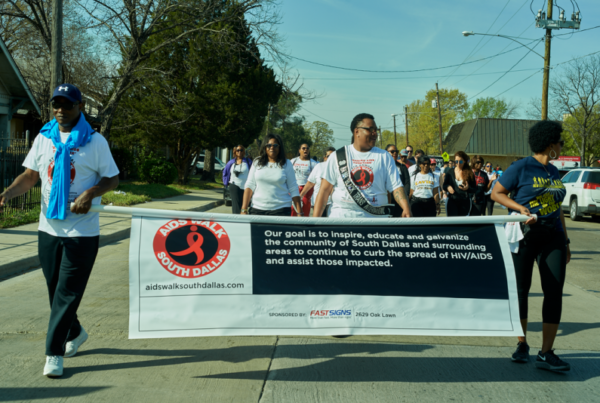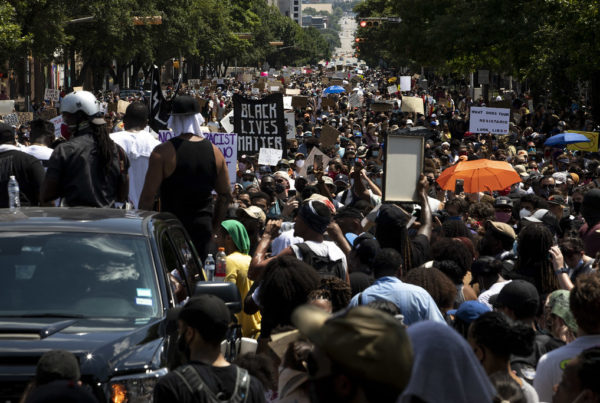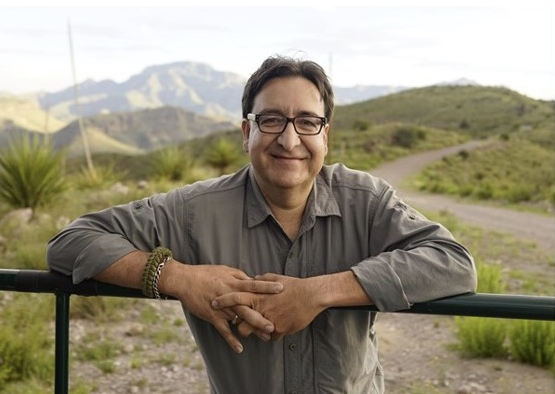From KUT:
“Defund the police” has become a nationwide rallying cry for people protesting police violence against black people. Locally, the Austin Justice Coalition has asked the City Council to remove $100 million from police department’s budget.
Council members have proposed several resolutions dealing with police violence and accountability. On Thursday, they’ll vote on moving some money from the police budget to other city programs that, advocates say, will better address public safety.
Where Will The Money Come From?
Item 96, written by Council Member Natasha Harper-Madison’s office, calls for not adding any new police positions in next year’s budget and eliminating existing positions that can’t be filled in the coming fiscal year.
Harper-Madison’s resolution, along with one written by Council Member Greg Casar’s office, call for prohibiting the Austin Police Department from buying “military-grade” equipment. These include vehicles, weapons and other items – often from the U.S. military – which critics say have no place in community policing.
Beyond these two proposals, some City Council members believe more money can be redirected through a detailed examination of police budgets. Last year, the city allocated APD roughly $440 million – about 40% of the city’s general fund.
“I believe a thorough assessment of every single solitary line item in the budget and an analysis of the true cost to the city … would help us to determine a number that could be less or even more than the proposed $100 million,” Harper-Madison said.
What Programs Get Funded
The idea behind “defunding” is to take money used on policing and to put it toward other parts of city government. A lot of the proposed resolutions don’t detail specific programs. But one that is highlighted is the Community Health Paramedic Program, which is a special team of medics who respond to some nonemergency 911 health and mental health calls.
“We can de-escalate those situations in the immediate moments that we arrive, say a few minutes,” Austin-Travis County EMS Assistant Chief Andy Hoffmeister told KUT. “If a person is just upset. If there isn’t a threat of violence or weapons or anything like that, we can work on ways to de-escalate things, and then we can work on ways to get them linked up with appropriate service.”
Council Member Ann Kitchen is also asking the city to fully fund the First Responder Mental Health Calls for Service Program. This program, which was started last year, puts more mental health professionals in 911 call centers to help people having mental health crises or to help police handling a person having a crisis.
Between December 2019 and June 2020, more than 23,000 calls to 911 were related to mental health, but only 291 were handled by a mental health counselor.
City Council members have also proposed putting more money toward housing security, family-violence prevention and substance-abuse response, though no specific programs have been named. The goal is to reframe public safety away from policing and put money toward fixing problems that are threats to public health and may be a root cause of many police interactions with the community.
“Every dollar spent on policing has an opportunity cost and that cost is money that could have been spent on housing, money that could have been spent on health,” Chris Harris, who directs criminal justice programs at the nonprofit Texas Appleseed, recently told a meeting of the Austin Justice Coalition. “We have doctors without [personal protective equipment], but we have police armed to the teeth.”
One place money diverted from the police can’t go to is schools – even school districts are facing massive budget shortfalls. General funding for public schools comes from the state, through property taxes.
Police Reaction To The Proposals
APD management and the union representing officers, the Austin Police Association, want more funding for the department, not less. The union has asked for a delay of the votes on these resolutions.
But police officers often do say they’re called on to do too many jobs – like act as social workers or mental health providers. So advocates of these overhauls say they would actually lessen the burden on police and could eventually get police support because of that.


